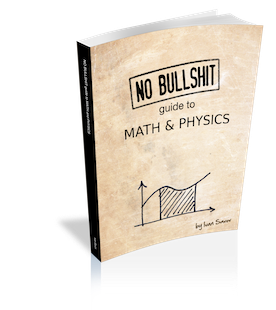The page you are reading is part of a draft (v2.0) of the "No bullshit guide to math and physics."
The text has since gone through many edits and is now available in print and electronic format. The current edition of the book is v4.0, which is a substantial improvement in terms of content and language (I hired a professional editor) from the draft version.
I'm leaving the old wiki content up for the time being, but I highly engourage you to check out the finished book. You can check out an extended preview here (PDF, 106 pages, 5MB).
Databases
You can query data in a database (ask it questions). You can look up data from a database relatively rapidly. You can relate data from two different tables together using JOINs. You can create meaningful reports from data in a database. Your data has a built-in structure to it. Information of a given type is always stored only once. Databases are ACID. Databases are fault-tolerant. Databases can handle very large data sets. Databases are concurrent; multiple users can use them at the same time without corrupting the data. Databases scale well.
via http://programmers.stackexchange.com/questions/190482/why-use-a-database-instead-of-just-saving-your-data-to-disk
